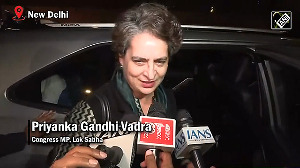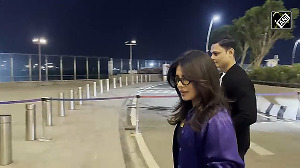Over three decades after the Hashimpura massacre in Uttar Pradesh in which 38 Muslims were shot dead in cold blood, the Delhi high court on Wednesday sentenced 16 former policemen to life imprisonment, holding it was a "targeted killing" of "unarmed, innocent and defenceless" persons.

Reversing an order of the trial court in 2015 that acquitted the 16 personnel, who were with the Provincial Armed Constabulary, a bench of Justices S Muralidhar and Vinod Goel termed the case as an instance of custodial killing where the legal system was unable to effectively prosecute the perpetrators of gross human rights abuses.
The court also said it was conscious that for the families of those killed, this was perhaps "too little, too late" as they have had to wait for 31 years for justice.
Zulfikar Nasir, an eyewitness to the massacre, alleged that the police and government always tried to weaken this case but said the families of the victims were not deterred and continued fighting.
"Finally justice has been done today. It would have given us more relief if the accused had been sentenced to death," he said.
Around 42 to 45 Muslim men, old and young, were rounded up by the PAC from Hashimpura area in Meerut city on May 22, 1987 and taken away into the armed force's truck, the court noted.
The victims were shot at two different locations by the PAC personnel with .303 rifles and the bodies were thrown into two canals -- Gang nahar and Hindon river, it said.
During the hearings, it was stated by the counsels before the high court that in all 42 persons were killed.
But the court in its 73-page judgement concluded that 38 were killed while five survived to recount the horrific tale. The dead bodies of just 11 of them were able to be identified later by their relatives while the remaining bodies were not recovered, it said.
"This was a case of a targeted killing revealing an institutional bias within the law enforcement agents in this case," it said, lamenting the manner in which the law enforcement officials have "frustrated" the cause of justice by weeding out important records.
"The prolongation of the trial for over two decades, compounded by the endemic systemic delays, have frustrated the attempts at securing effective justice for the victims," the court said and directed the convicts to surrender by November 22, failing which the SHO concerned will immediately take them into custody.
It said a "disturbing" aspect of the case was the targeted killings of persons belonging to one minority community and it involved the abduction of 42 to 45 persons and killing of 38 of them soon after the incident of riots in which two rifles of the PAC were allegedly taken away by the rioters.
"It points to the disproportionate reaction by the PAC in targeting the members of the minority community. The court is therefore unable to accept the submission on behalf of the accused that the motive for the commission of the crime was not proved," it added.
The 16 former cops were held guilty for the offences of murder, kidnapping, criminal conspiracy and destruction of evidence under the IPC and the life terms effectively means they will be behind bars for the remainder of their natural life.
The court also imposed a fine of Rs 30,000 each on the 16 convicts who all have retired from service.
The verdict came on the appeals filed by the UP government, National Human Rights Commission, survivors and victims' families against the trial court verdict on March 21, 2015.
The case was transferred to Delhi on a Supreme Court direction in September 2002 following a petition by the families of the massacre victims and survivors.
"In arriving at this conclusion, we have also relied on the additional evidence recorded, which was not available to the trial court. We hold that this was targeted killing by armed forces of the unarmed, innocent and defenceless members of a particular community," the bench said in its verdict.
The court further said the monetary compensation the families of the victims have received cannot make up for the lives lost and this case pointed to the systemic failure that results, not infrequently, in a miscarriage of justice.
Senior advocate Rebecca John, representing the victims, said they have received over Rs 1 lakh each in compensation.
Holding that the deaths of the victims were "custodial deaths", the court said although they were not taken to an enclosed place by the PAC, they were unlawfully detained, kept in a PAC truck and taken to two places and asked to keep their heads down and not allowed to move.
"This leads this court to conclude that they were kept in unlawful custody by the accused purporting to discharge their official functions when in fact they were clearly acting illegally," it said.
According to the then superintendent of police of Ghaziabad, Vibhuti Narain Rai, who conducted initial probe into the killings, the Hashimpura episode is a "sordid saga of the relations between the Indian State and minorities, the amoral attitude of the police and a frustratingly sluggish judicial system"
Rai said that horrifying night of May 22 in the humid summer of 1987 still weighs heavy on his conscience.
"And the subsequent days, similarly, are etched in my memory like as if on stone - it was something that overpowered the cop in me. The Hashimpura experience continues to torment me," he says.









